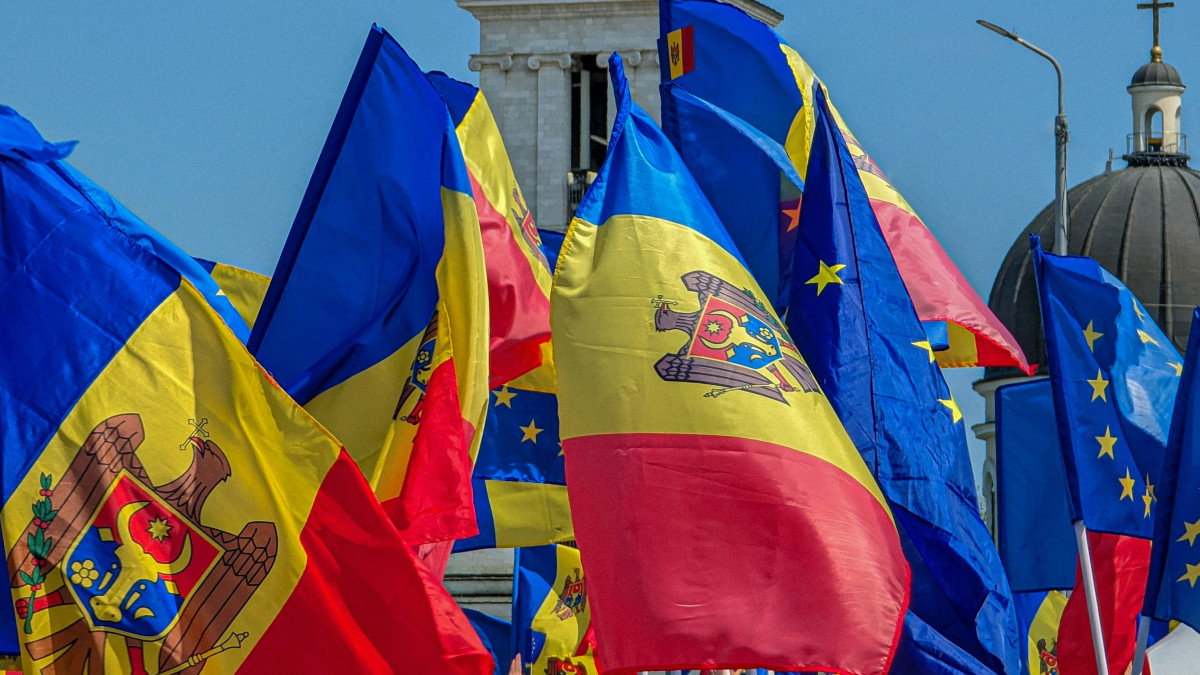Russia Seeks to Sway Moldova’s Crucial Elections, Flooding the Country With Disinformation
Published: Sep 26, 2025 Reading time: 5 minutes Share: Share an articleOn Sunday, Moldovans will head to the polls to elect a new parliament and decide whether the pro-European government stays in power or if pro-Russian forces take over. In the weeks leading up to the vote, Russia has launched a sweeping disinformation campaign, training and paying people to spread propaganda across social media.

Moldovans are being bombarded with false claims, including accusations that joining the European Union would require citizens to change their gender, that President Maia Sandu is running a child-trafficking network, and that the government is preparing to falsify the election results.
Journalists from the independent Moldovan outlet Ziarul de Gardă managed to infiltrate this propaganda network. One reporter, using a false identity, joined a secret group on the Telegram messaging app after receiving a link from a whistleblower.
A Sophisticated Network of Paid Disinformation Agents
Inside the group she found herself alongside more than thirty other recruits and watched as Russian-speaking coordinators explained step by step how to spread content designed to undermine public trust in the Moldovan government.
The first online seminars seemed harmless, focusing on patriotism and Moldovan history. Over time, however, the assignments became openly political. Participants were instructed to write posts accusing the Sandu government of planning to rig the election, to claim that EU membership meant "changing one’s sexual orientation to LGBT", and to allege that Sandu was personally directing human trafficking operations.
Participants were trained to make their posts look organic and to avoid using too much artificial intelligence so that their content would seem authentic. They were taught how to exploit Facebook and TikTok algorithms to reach as wide an audience as possible.
As another investigative work done by the Nordnews outlet showed, they were not taught by a random group of trainers, but a well-structured network of Russian political technologists with experience in campaigning, agitation, and mass psychology. Notably, the identities of several coordinators and experts remain unknown - they avoid the public eye and carefully conceal any personal information.
For an entire month, these trainers indoctrinated the program’s young participants. They began with “soft” topics like leadership and creativity, gradually escalating to lessons on covert agitation techniques, manipulation of public opinion, and strategies to mobilize people for concrete political goals.
This was not volunteer activism. The most active participants were promised to receive hundreds of euros a month, often paid in cryptocurrency or through Promsvyazbank, a Russian state bank under international sanctions.
A separate investigation by the BBC confirmed the scale of the operation. According to its reporting, the network runs at least ninety TikTok accounts, some of which pretend to be news channels.
The network did not limit its activities to social media. Some members were paid to carry out unofficial opinion polling in the capital Chisinau and to secretly record the responses of those who supported pro-Russian opposition parties. These recordings were meant to be used as evidence of supposed election fraud if the pro-European PAS party were to win.
Since January they have posted thousands of videos that together have been viewed more than twenty-three million times in a country with a population of only 2.4 million. Analysts from the US-based DFRLab believe the operation is even larger and may have already reached tens of millions of users.
Strong Russian Influence
Both Ziarul de Gardă and the BBC report that the campaign is backed by Moldovan oligarch Ilan Shor, who lives in Moscow and is sanctioned by both the European Union and the United States.
Shor became notorious for his role in Moldova’s so-called “theft of the century,” when one billion dollars disappeared from the national banking system through fraudulent loans and other means. He was sentenced to fifteen years in prison for fraud and money laundering but fled the country.
In September 2025, Romanian NGO Funky Citizens exposed major Russian interference in Moldova, financed through schemes linked to the Shor-affiliated NGO Eurasia. Nearly a third of 4,480 monitored social media links spread disinformation, mainly claiming the government had “sold” Moldova to the West. Other narratives alleged election fraud, painted Moldova as authoritarian, and warned of being dragget into war by NATO, the EU, and Ukraine.
In June 2023, Moldova’s Constitutional Court declared Shor’s political party unconstitutional and dissolved it. Parliament then passed a law banning Shor and the party’s leadership from running for office for five years. Today he continues to operate through other political blocs, which authorities view as a continuation of his outlawed party.
Recently, Mediacritica, an independent Moldovan organization, exposed a disinformation campaign where eight Telegram channels spread fake news about Romania planning a military intervention in the breakaway pro-Russian region of Transnistria at Maia Sandu’s request. The fabricated story, citing fake Romanian sources, quickly went viral - 190,000 views and 2,700 shares in one day - using foreign media to appear credible.
Key election
On Sunday, September 28, Moldovans will decide in a single-day vote who will sit in the country’s 101-seat parliament for the next four years. The election is seen as a showdown between the pro-European government and a largely pro-Russian opposition.
The ruling Action and Solidarity Party, known as PAS, is seeking to keep its majority, while the main challenger is the Patriotic Electoral Bloc led by former president Igor Dodon, who advocates closer ties with Moscow and opposes integration with the European Union.


